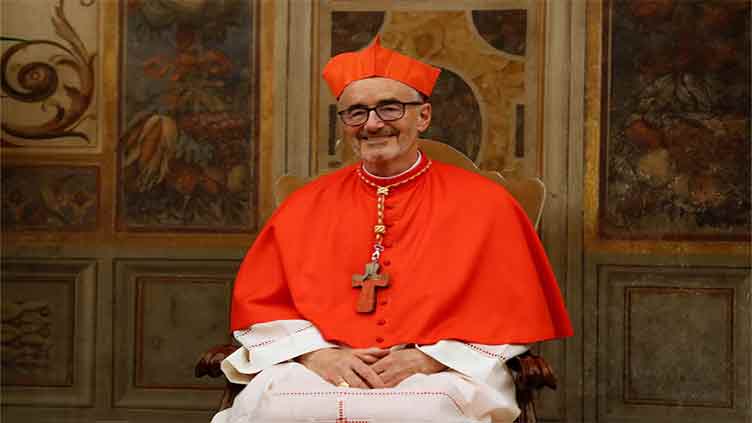Vatican to EU election voters: don't dehumanise migrants

World
Vatican to EU election voters: don't dehumanise migrants
VATICAN CITY (Reuters) - The Vatican's point man on migration and social justice on Monday urged EU citizens who might be tempted to vote for far-right parties in this week's European Parliament elections to remain sympathetic towards migrants and refugees.
Far-right and conservative parties are expected to make gains in the June 6-9 vote, potentially tilting European Union politics towards a tougher approach on law and order and border security.
The Vatican does not normally take political sides, but during his 11-year papacy, Pope Francis has consistently spoken up for migrants' rights and called for a more humanitarian approach by Western governments.
Voters should put themselves in the shoes of migrants and realise that they too would want to look for a better life in Europe, Cardinal Michael Czerny, head of the Vatican's human development office, told reporters.
"It is very important to understand what it means to be pressured by reality, by history, to flee... Often propaganda or ideology suggests that (migrants come) out of pleasure or a sense of adventure: this is false, false, false," he added.
Czerny was responding to a question on whether he was worried by EU election far-right gains at a press conference that unveiled a papal message for the Catholic Church's World Day of Migrants and Refugees, falling on Sept. 29.
The cardinal, the son of Czech immigrants to Canada who wears a cross made from the wood of a migrant boat that landed on Italy's Lampedusa Island, said it was important not to dehumanise migrants.
"(Let's) recognise these people as brothers and sisters, we can repeat the words endlessly to understand their meaning... recognising them as brothers and sisters changes everything," he said.
Czerny also noted that many Europeans have a family history of immigration. "It is a shame, really a shame, that after one or two generations, a family can forget its own migration roots," he said.


